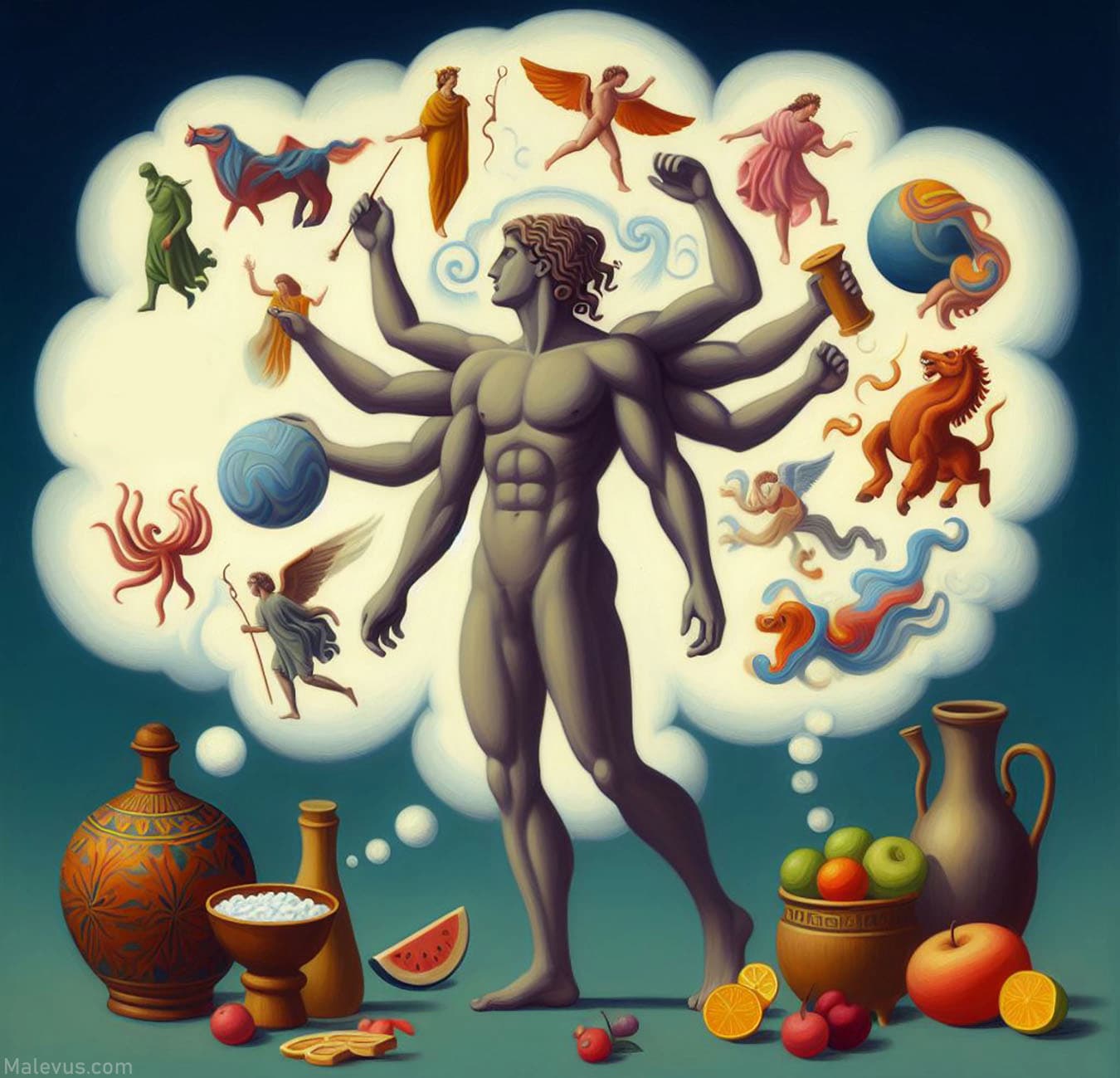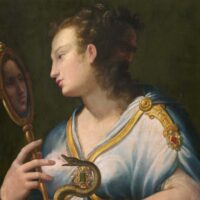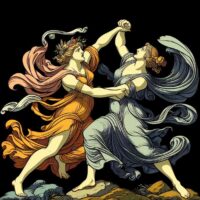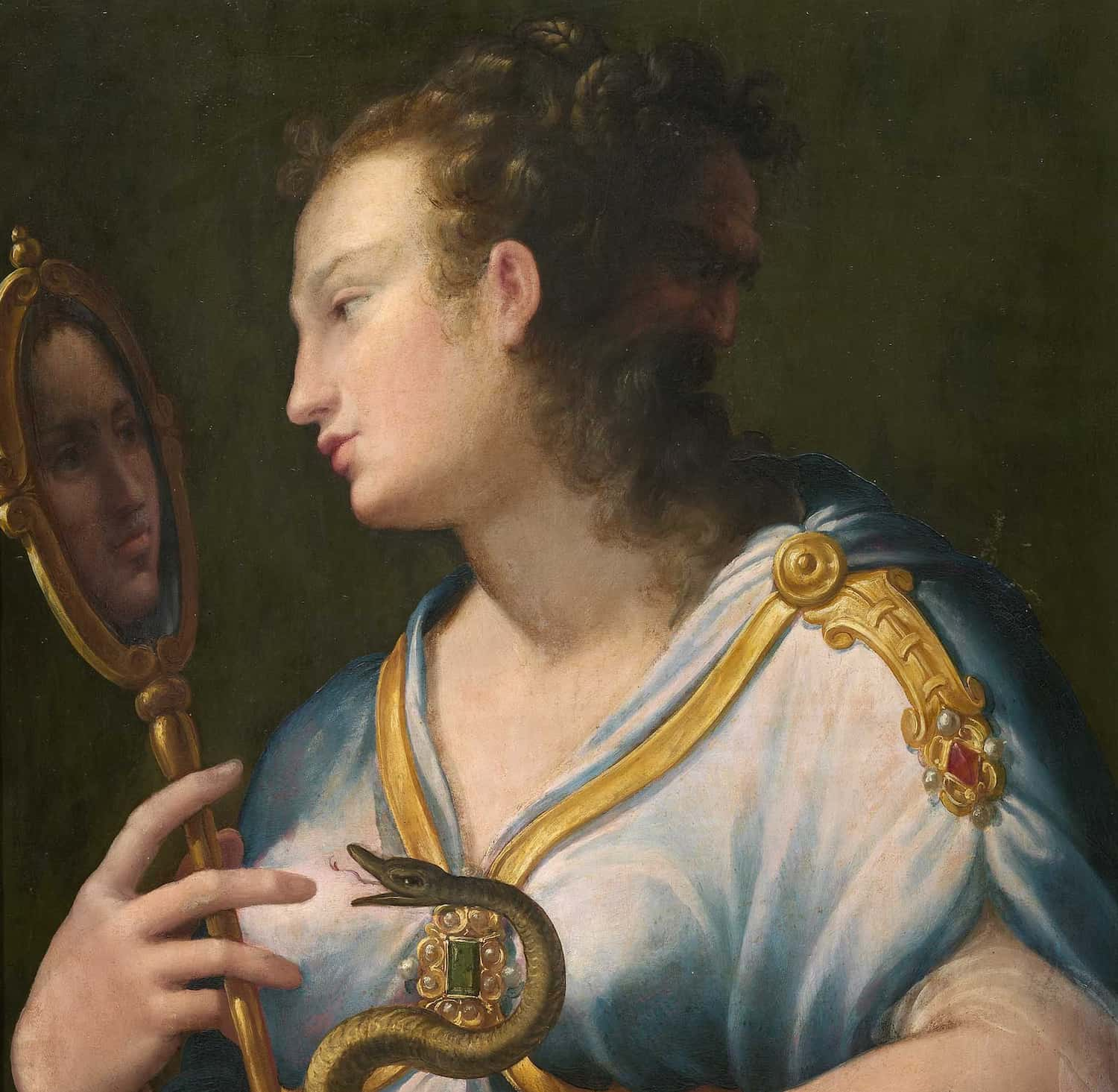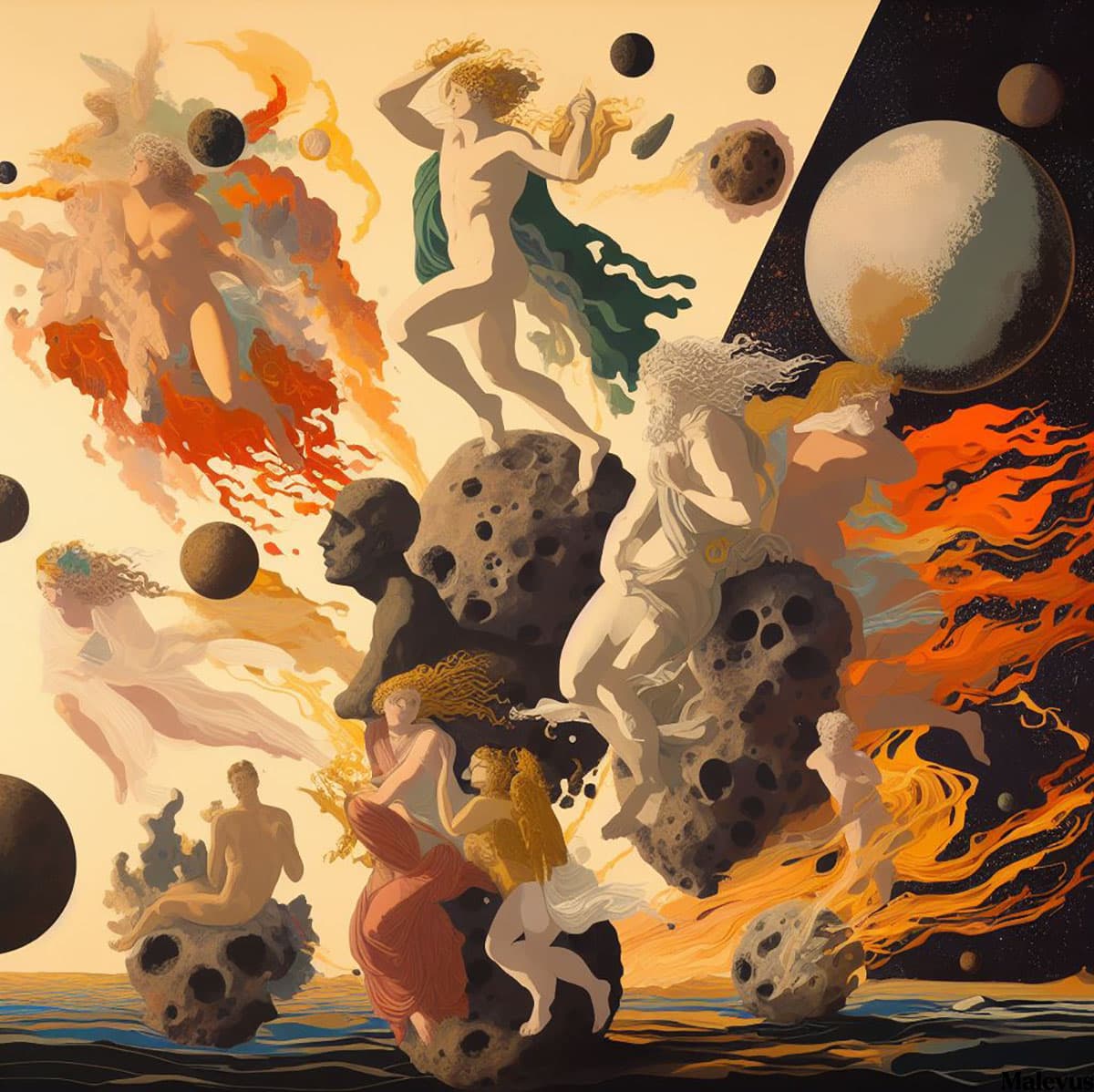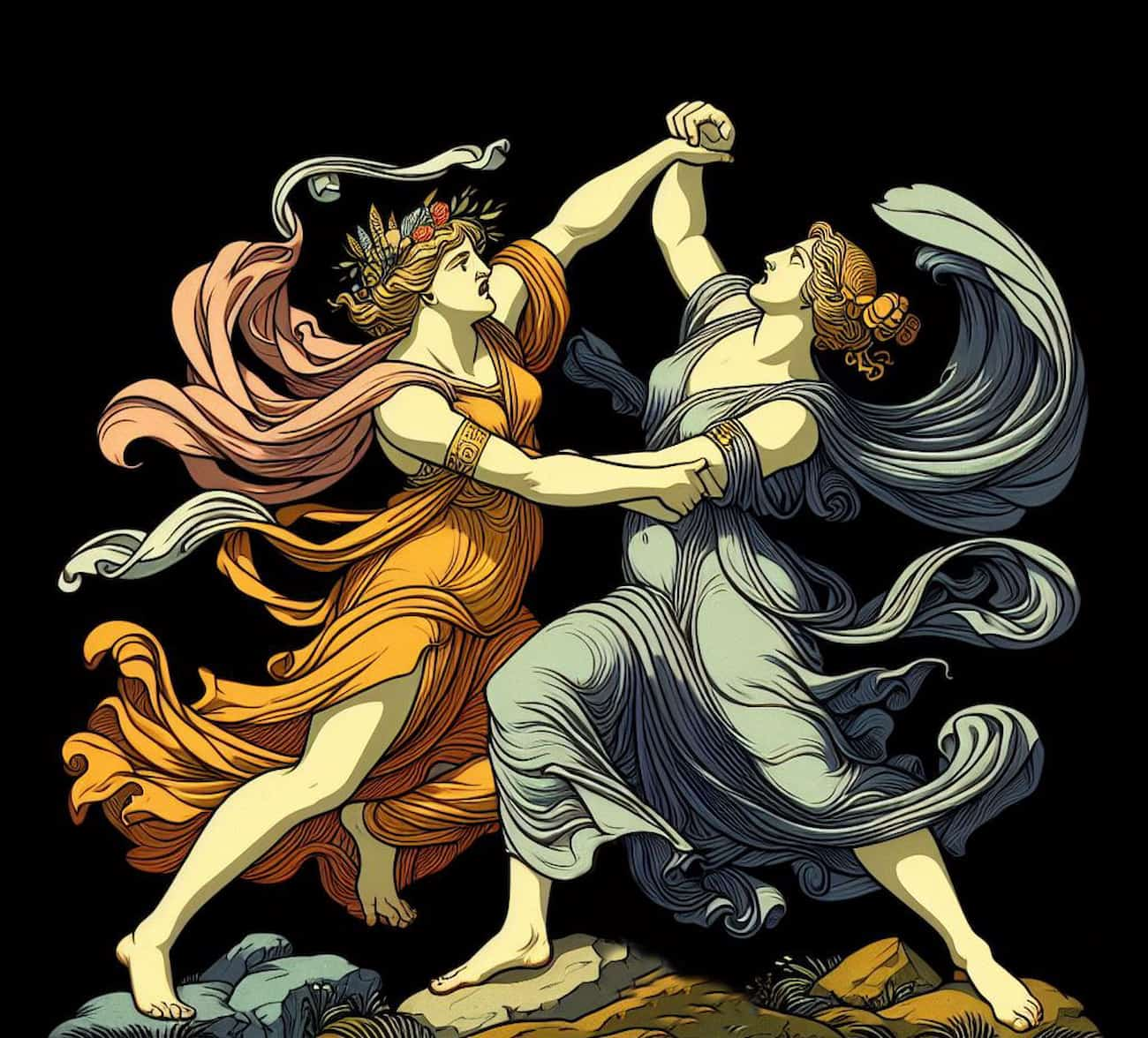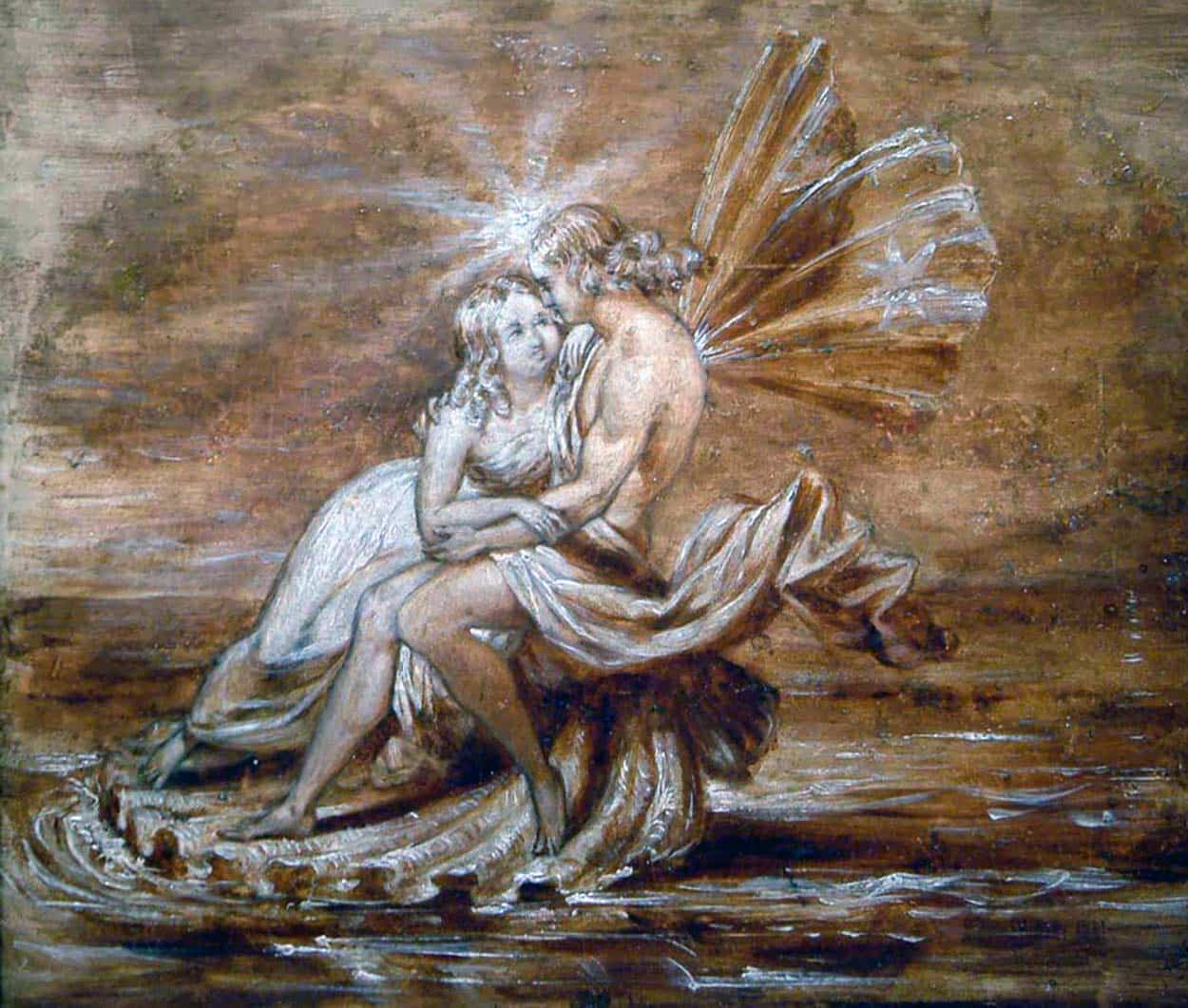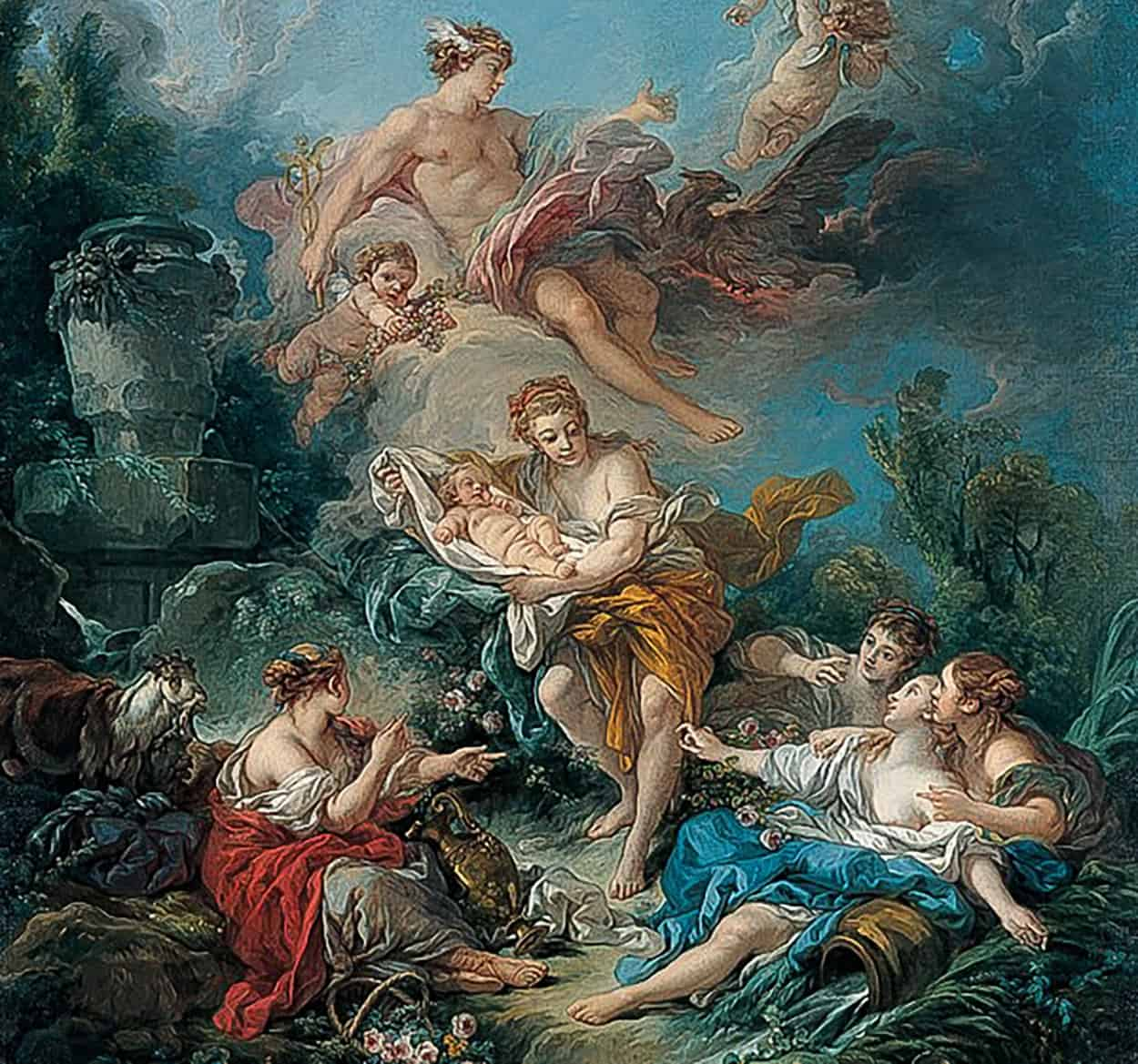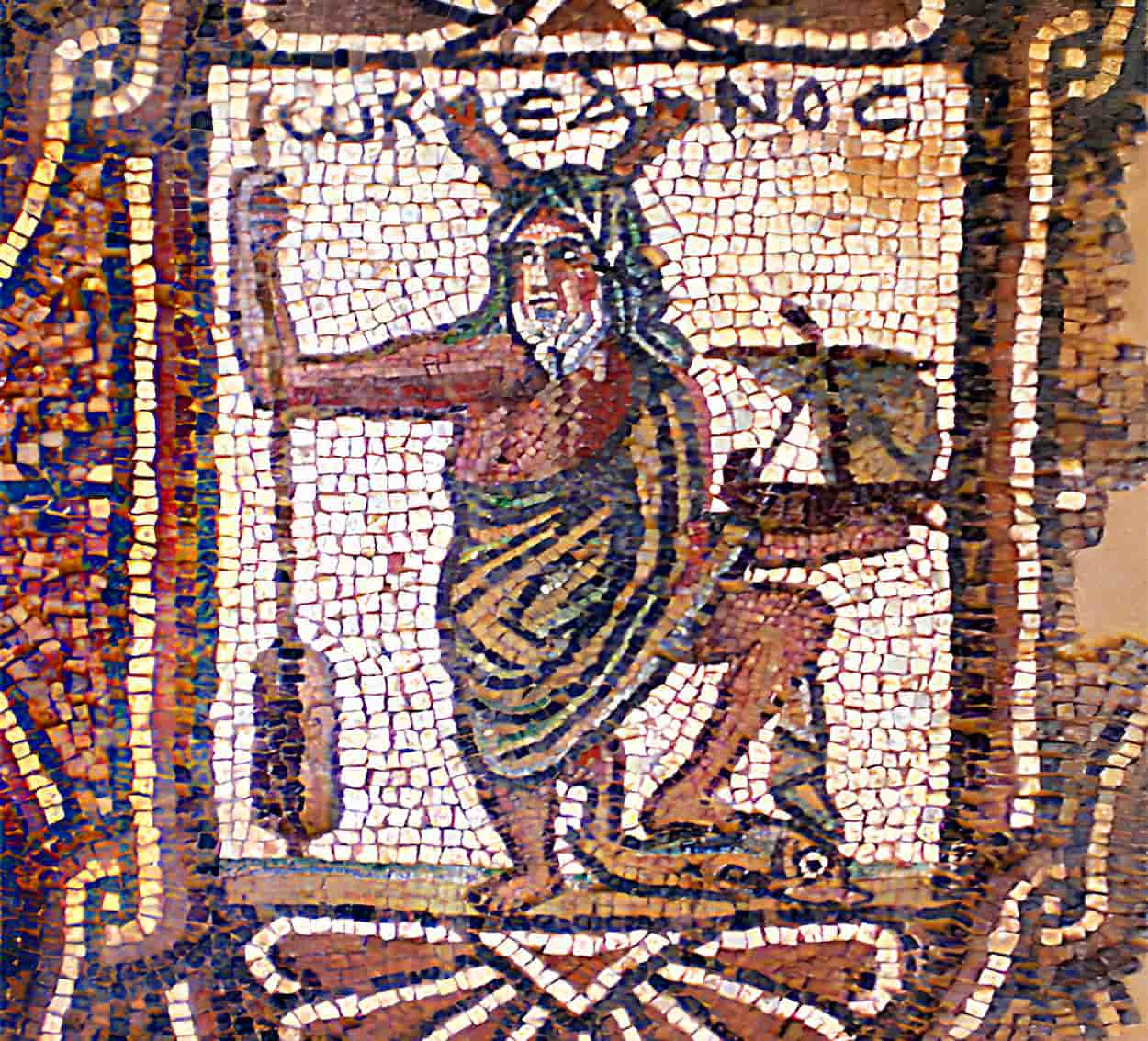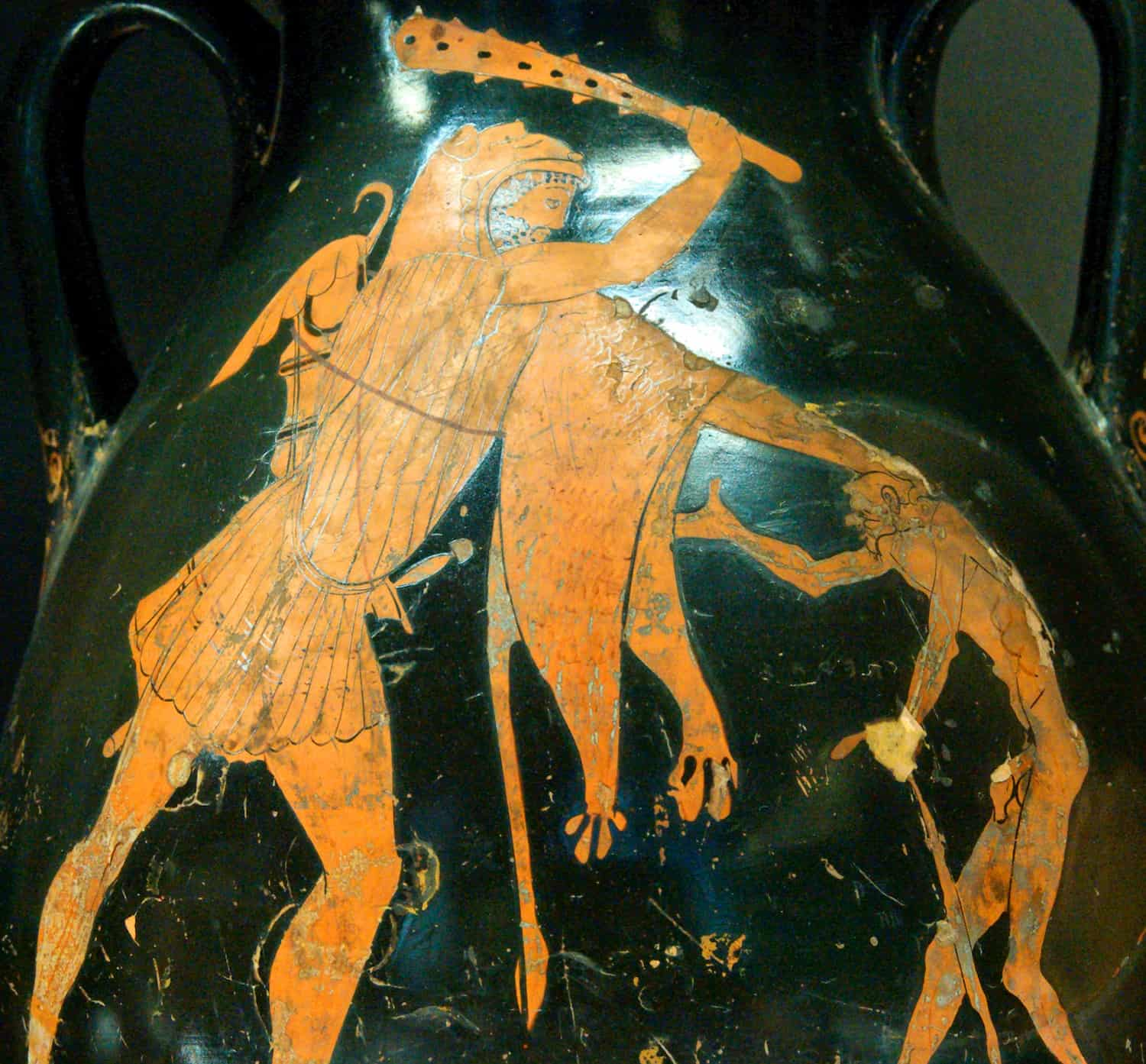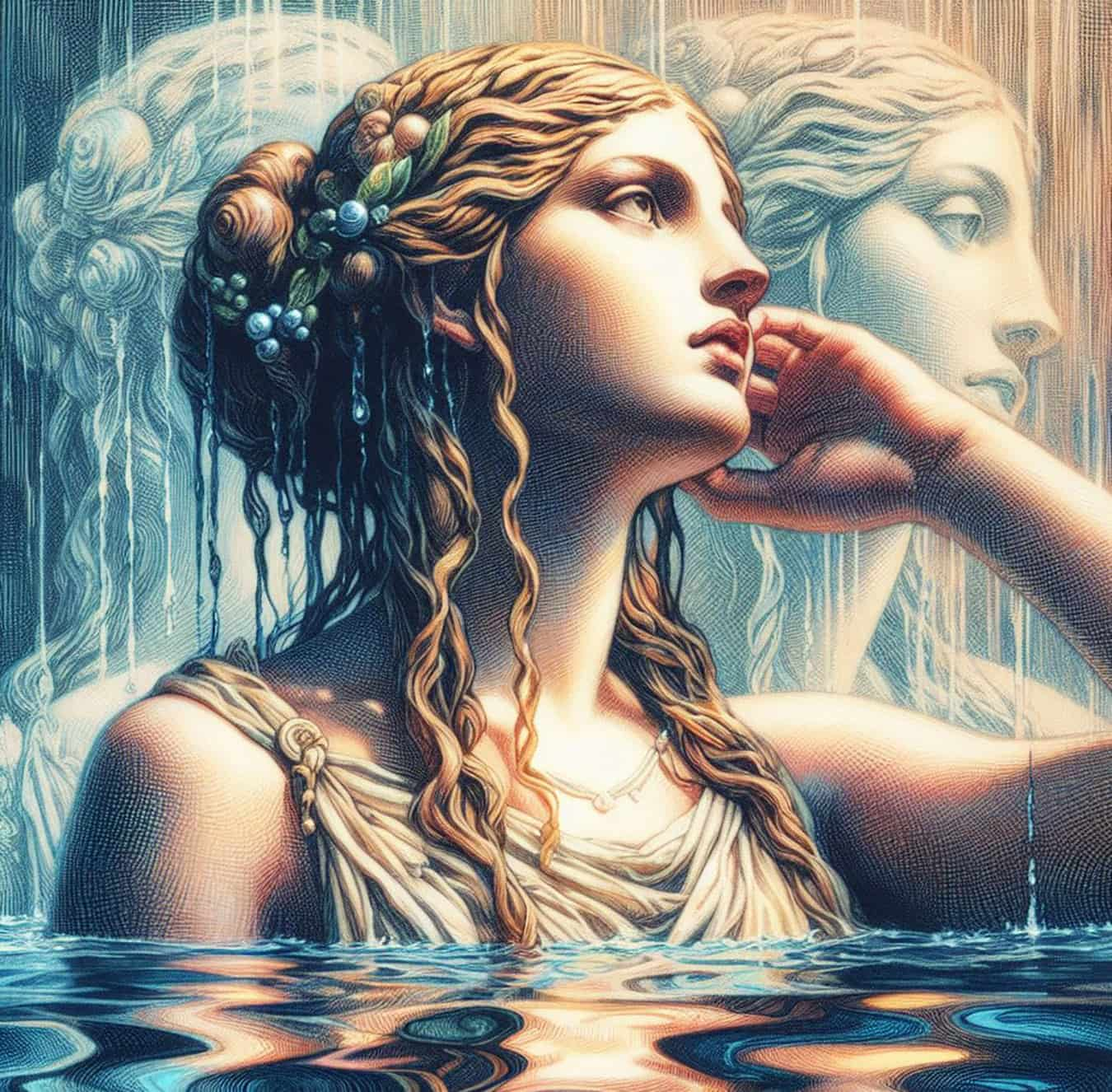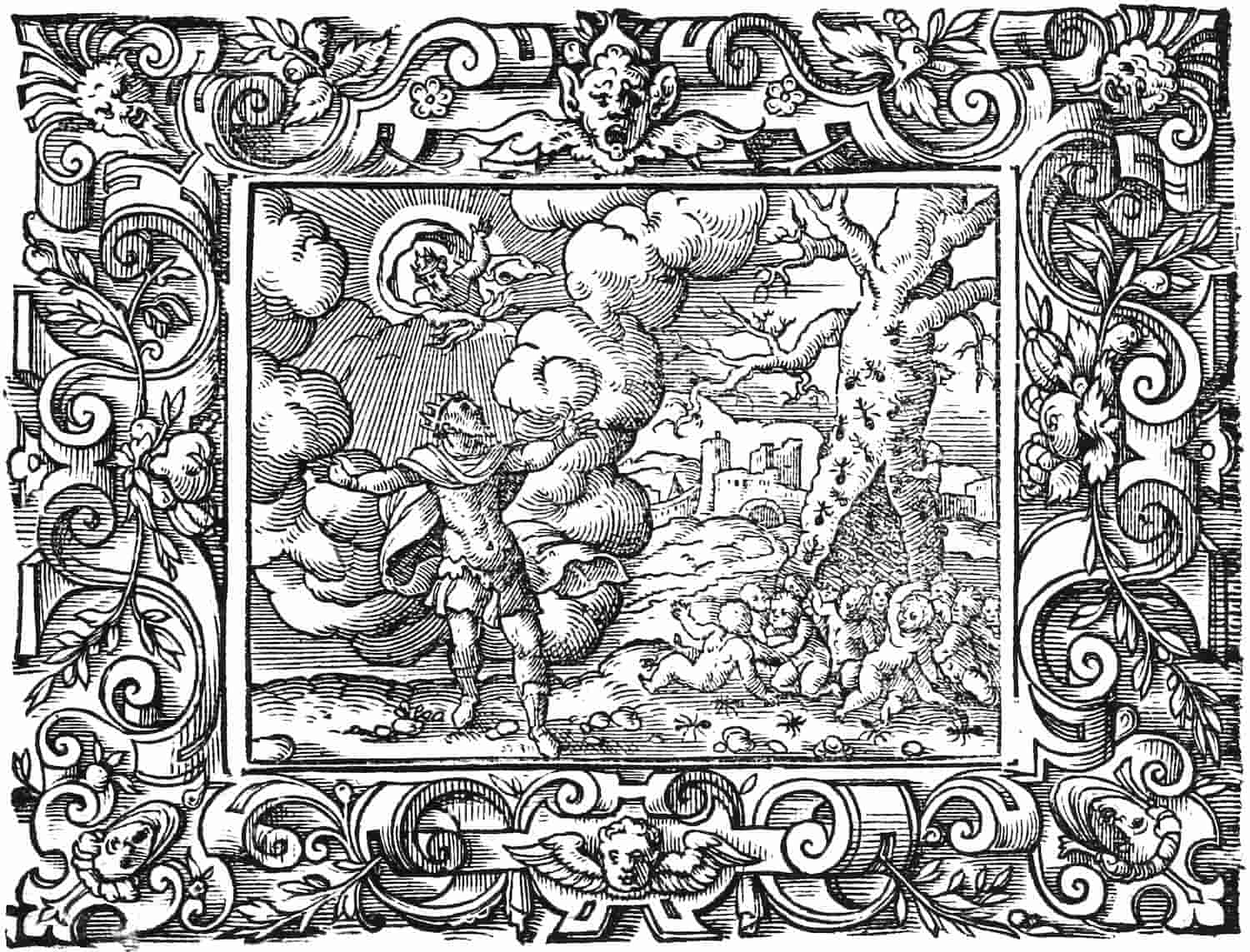In Greek mythology, Phantasos was one of the Oneiroi, the children of Hypnos (sleep) who personified dreams. According to Hesiod (in the 7th century BC), Phantasos is the son of Nyx, the primordial goddess of the night, produced parthenogenetically. According to Cicero (106-43 BC), his father was Erebus, the personification of darkness.
Phantasos was the god who caused dreams of inanimate objects. He was the brother of Morpheus, Icelus, and Phobetor. Some say he was the son of Hypnos (called Somnus in Latin), and others say he was the brother of Hypnos and Thanatos.
Specifically, Phantasos was responsible for dreams in which inanimate elements of nature appeared, such as rocks, water, or trees. He is the instigator of fantasies that cloud reason, creating confusion between the real and the fictitious.
“A third, Phantasos, uses different prestige. It is changed into earth, into stone, into waves, into trees; it occupies all objects that are deprived of life. »
— (XI, 642-644; trans. G.T. Villenave, Paris, 1806)
Like the rest of the Oneiroi, he was a spirit with dark wings that every night emerged from his cave in Erebus like bats and presented themselves in the dreams of men.
There Are Three Brothers
- Morpheus – can take on the form and voice of any person
- Phobetor or Ikelos (“Intimidator”) – appears in animal form
- Phantasos – can transform into fantastic inanimate things.
Phantasos and his brothers were the main Oneiroi, responsible for the dreams of kings. They left the dreams of the rest of the mortals to the other Oneiroi, who numbered a thousand.
He appears to people in their sleep after his father puts them to sleep and leaves.
He takes on the fantastic form of various things and appears to people as a ghost personified.
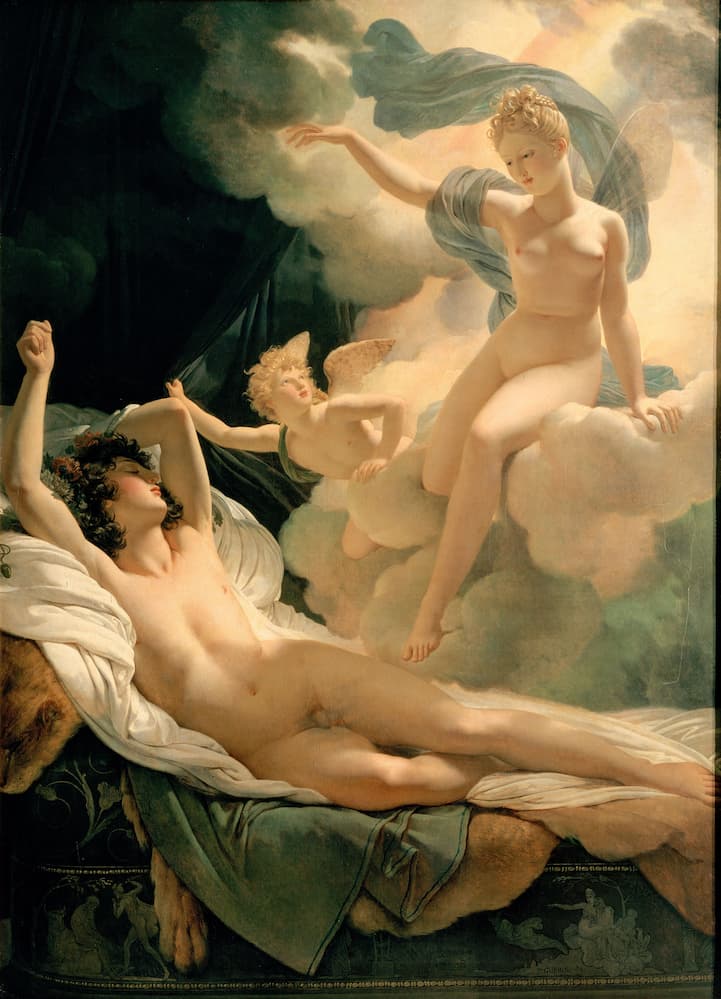
Phantasos in Metamorphoses
According to Ovid’s description, the dream gods had different specialties, and Phantasos and Morpheus (Μορφεύς) had opposite abilities.
Phantasos: he passes through the ground, the rock, the wave, the beam, and the empty soul, all things by deception
Etymology
Φαντασός is the Greek word adapted from the Latin Phantasos in the original book of Metamorphoses. Comes from the noun φαντασία (to appear, to reveal); the root is the verb φαίνω (to reveal, to bring light).
In European languages, words with phanta-/phantas- as the stem usually have meanings such as (phantom…), which are rewritten from Latin to Greek, such as English phantasm (phantom) and phantasy (fantasy). song), phantasmal (phantom).
His name has passed into all languages and is still used as fantasy and fancifulness to this day.
In Popular Culture
Fantaso is featured in Saint Seiya: The Lost Canvas (manga series) where, on the orders of his father Hypnos, he captures Tenma of Pegasus, Yato of the Unicorn and Yuzuriha of the Crane, bringing them to the Dream World.



